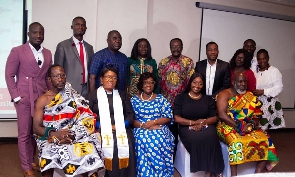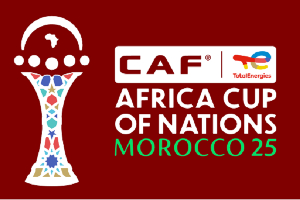A sickle cell disease (SCD) advocacy group, Sickle Gene Action Foundation (SGAF) has been launched in Accra, with a call on society for collective action in the fight against SCD in Ghana. The SCAG aims to identify the challenges of persons living with SCD in the country. The launch was held on Thursday (23rd November 2023).
SGAF is also advocating for legislative change to make SCD medications like Hydroxyurea and treatment guidelines widely accessible as with medications for HIV/AIDS which are easily accessible throughout the country.
The organization will collaborate with the Government of Ghana and other stakeholders to profer solutions to the challenges hindering the treatment and management of SCD in the country.
In her welcome address the Executive Director of SGAF, Ms. Victoria Awo Twumasi revealed that SGAF took its inspiration from a world-renowned hematologist and Former President of the Sickle Cell Foundation of Ghana, the late Professor Kwaku Ohene-Frempong, who dedicated his time and career to support persons living with SCD. “The sickle cell community is grateful for all his hard work that has saved many lives”. She added.
She stated that the organization “believes that early diagnoses, early access to affordable treatment, and early public health awareness with quality sickle cell centers for prompt management of the condition are critical to saving lives”.
According to Ms. Twumasi, measures such as stakeholder engagements, and public health interventions such as counseling are some measures needed in a proactive strategy to help find solutions to the challenges in the treatment and management of SCD.
She, therefore, made a call to action for all to join in the fight against SCD by driving national awareness and strengthening the role of civil society in advocacy through a stronger voice both nationally and internationally.
A Pediatrician from the Child Health Department of the Greater Accra Regional Hospital (GARH), Dr. Yvonne Brew noted that “there is the need for newborns to be screened for SCD so that treatment can start early to save their lives. Early detection saves lives. We must know that if a child survives, society also survives”.
She requested the government and stakeholders to make newborn screening for SCD and hydroxyurea (medication for severe SCD) accessible in all facilities to save more lives. She also, stated the need for families, friends, and society to show love to persons living with SCD since that also contributes to treatment.
A presentation by the National Nurse Coordinator for Newborn Screening, Mrs. Mary Lamptey, informed guests about the importance of newborn screening for SCD and the process involved in it. “Newborn screening started in the Ashanti region in 1992. It involves heel pricking which gives us some blood samples to carry out the test. It’s quite simple and done with consent from the babies’ parents”.
She mentioned that “although newborn screening for sickle cell disease started in 1992 and was extended to few health facilities, they could not scale up to cover the entire country due to lack of funding.
She used the opportunity to pay tribute to the late Prof. Ohene-Frempong who introduced newborn screening for SCD to Ghana and Africa. The ceremony was attended by government officials, traditional authorities, religious leaders, healthcare professionals, caregivers, and sickle cell warriors.
Press Releases of Thursday, 30 November 2023
Source: SCAF













